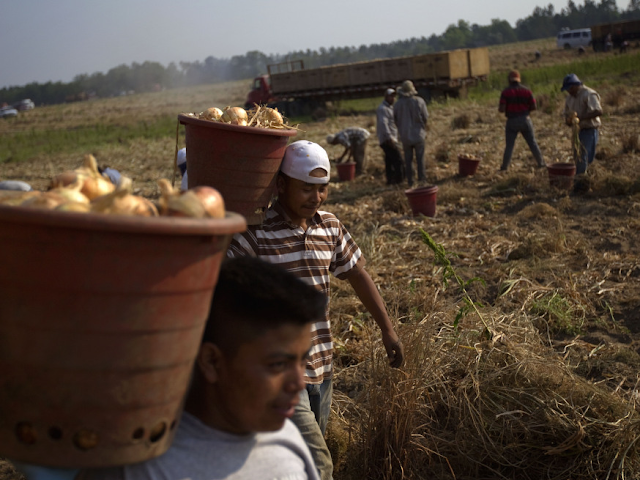The Results of Using Illegal Labor Are Completely Rotten
Nothing in Los Angeles is more exciting than the arrival of spring. It's simple to forget about one of the city's stormiest winters this year thanks to the sunny streets and crystal-clear skies. I'm thrilled to be able to walk to class without my boots and umbrella, like most Angelinos, but I already miss the seasonal produce. Winters in California is all about the oranges in my opinion. Oranges that are the ideal combination of sweet and sour are available during these three months.
It's simple for me to forget how those wonderful oranges got to my neighborhood supermarket as I recall them. Farm workers are an essential part of the harvesting process, even though harvesting methods vary. There wouldn't be flawless winter oranges without them.
According to a 2012 investigation into the orange groves in Southern Italy, many migrant workers received daily wages of only 25 euros, before gang leaders deducted money for lunch and transportation. Inhumane living conditions existed for workers. Others slept in abandoned farms or outside, while some were in camps without electricity or running water. There was no way for workers to request better working conditions without employment contracts.
The 21st century, oranges, or Italy are not the only settings for this tale. Labor exploitation in the agriculture sector has a long history, frequently taking advantage of migrant workers who lack the means to resist unethical labor practices.
More than 100 people from Mexico and Central America were allegedly brought illegally into Georgia and forced to work on onion farms, receiving only 20 cents per bucket in pay, Operation Blooming Onion, a multi-agency federal investigation said so!
Through this scheme, the accused farmers made more than $200 million. In addition to being overworked and underpaid, laborers also had to spend their meager earnings on things like food, transportation, and crowded housing that frequently lacked plumbing and access to safe water. Employees who disobeyed their employers were threatened with guns, torture, and deportation. At least two people died as a result of the appalling conditions, and numerous others suffered from rape, kidnapping, being sold to other farms, or receiving death threats against them and their families.
A little under 50% of the agricultural labor force in America is made up of immigrants, including those employed in Georgia's onion farms. Undocumented workers lack access to national labor protections, putting them at a higher risk of being exploited by employers without any legal recourse even though our economy and food security depend on their work.
We overlook the plight of undocumented workers and accept the mistreatment of illegal immigrants as though doing so justifies harsh labor practices that are equivalent to cruel and unusual punishment.
The purpose of H-2A visas is to reduce the number of undocumented farm workers by allowing foreign nationals to work temporarily in the United States while receiving protection and legal assistance if their employers violate labor laws. Less than 4% of the agricultural workers received visas in 2019, though. The program's limitations mean that the promised protection is merely surface-level.
Although it is a common occurrence, California, where the majority of the nation's agricultural output is produced, is where it is most severe. Although undocumented immigrants are now covered by state labor laws, workers still risk deportation to fight for the rights they were promised.
The typical Californian can distance themselves from farmworkers sufficiently to feel exempt from responsibility for this abuse. By excluding these groups, we take away any incentive to support workers in the fight for ethical agricultural practices, allowing us to enjoy our oranges while the workers endure working conditions that are akin to modern slavery.
This social issue is much too complex to be addressed in 700 words for the university newspaper. It will require legislation that recognizes a universal right to labor protection regardless of one's citizenship status as well as immigration policies that acknowledge the value of migrant workers. There are ways for each of us to start small even though the required changes are significant. We make decisions every day that can move us closer to an equitable society, from boosting the voices of agriculture activists to buying food from moral farms.

.png)
Comments
Post a Comment